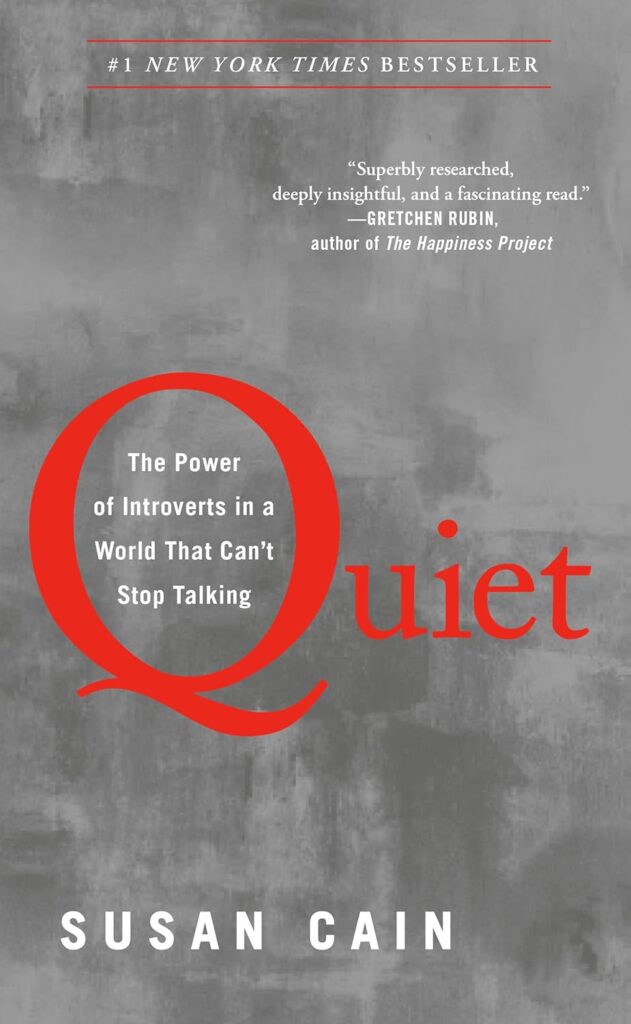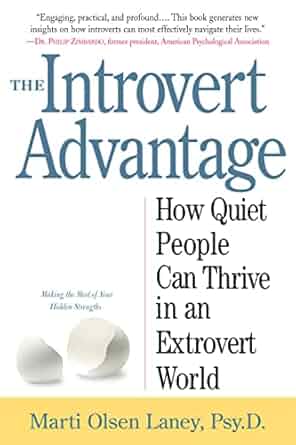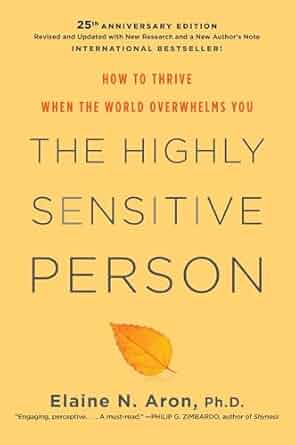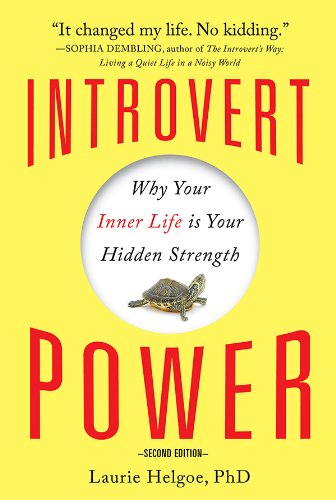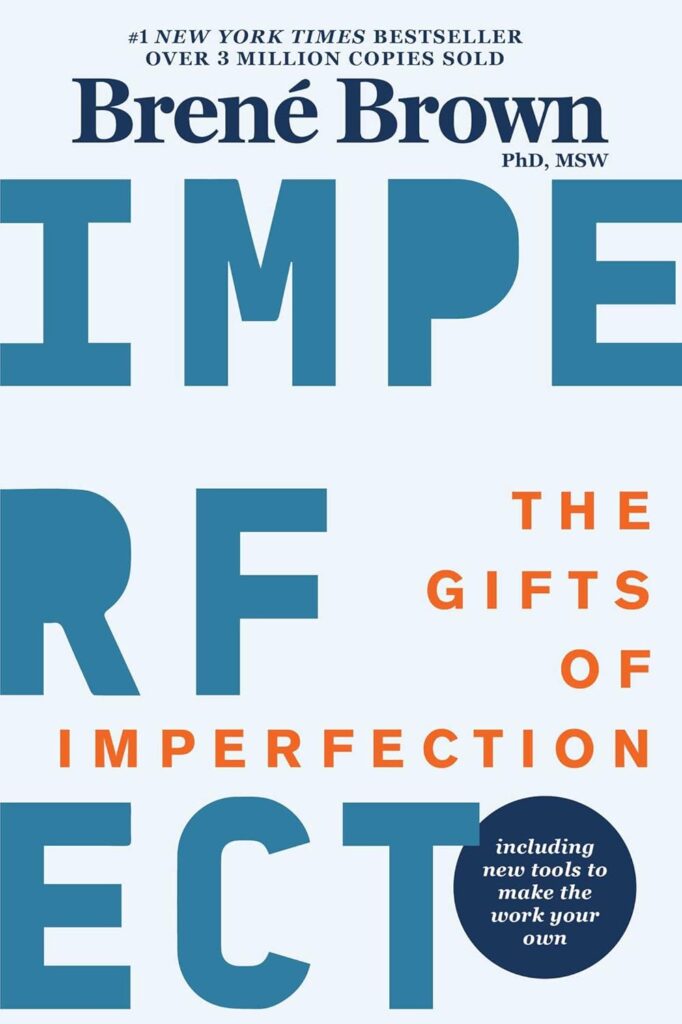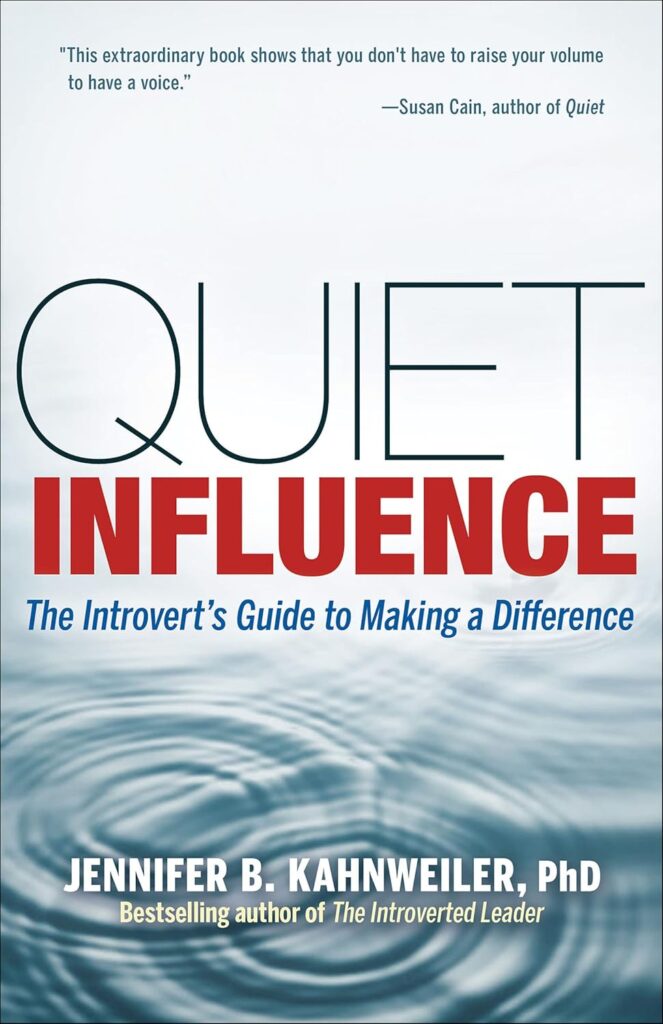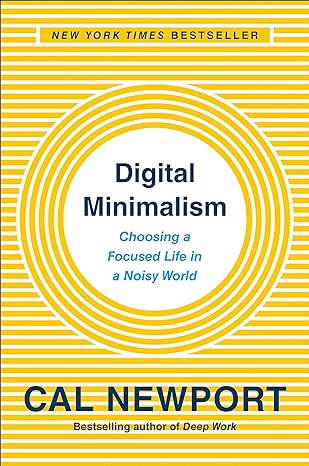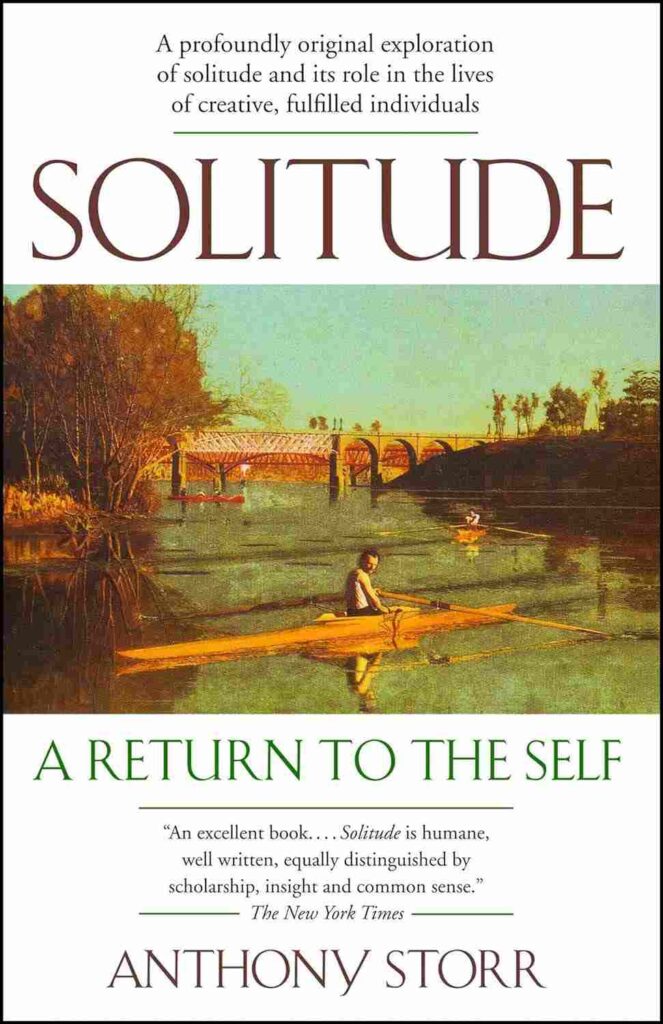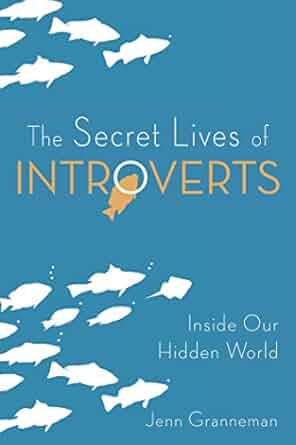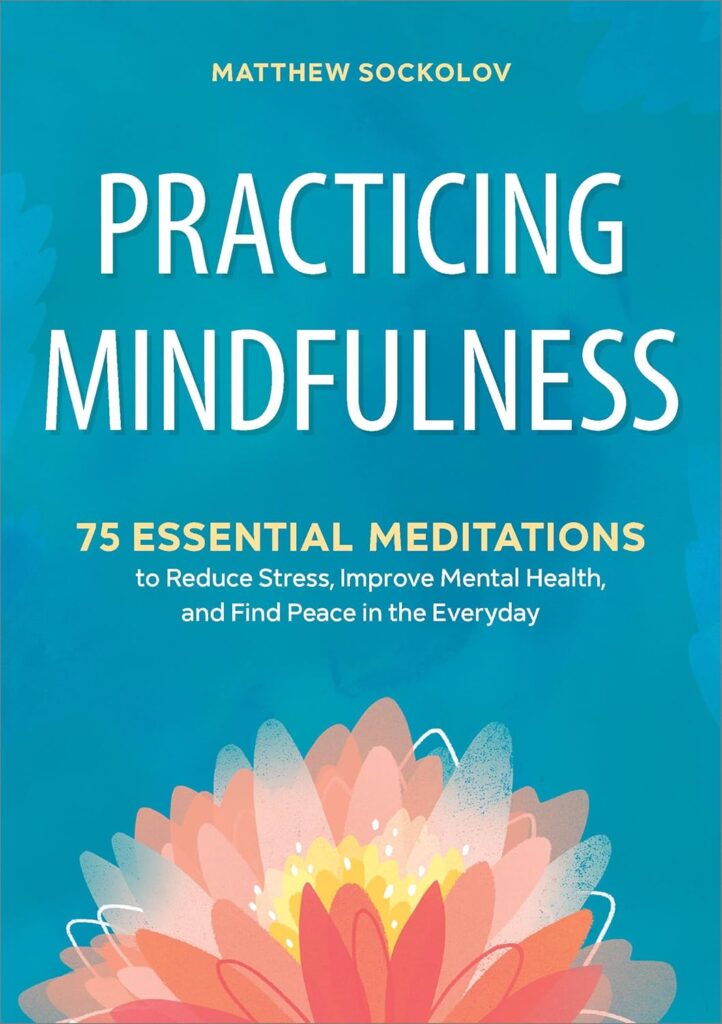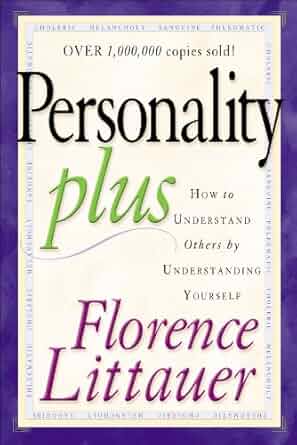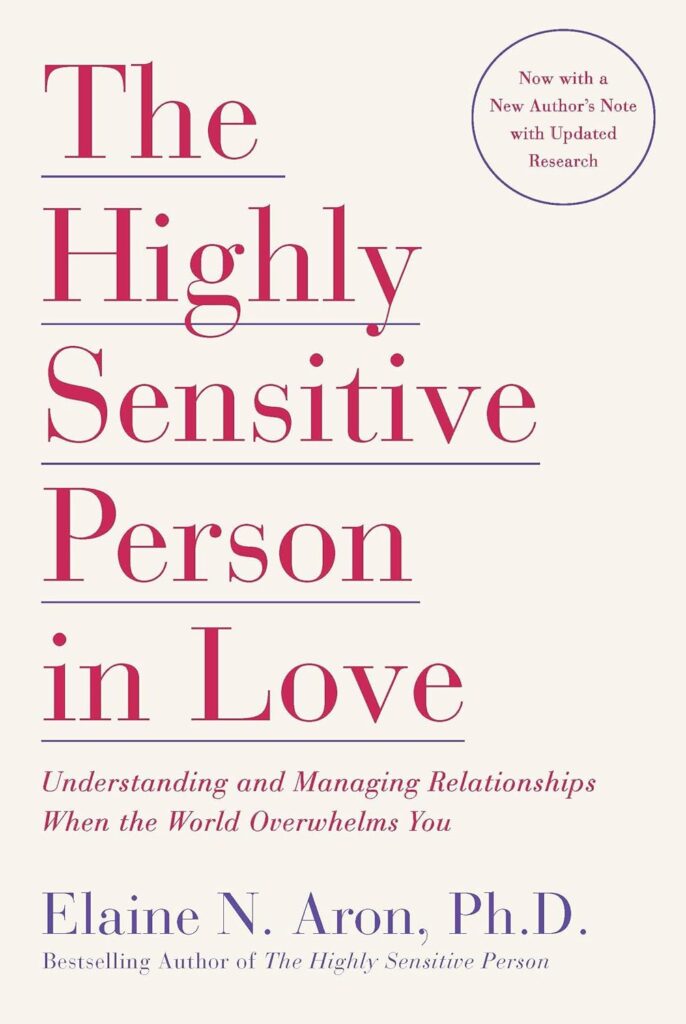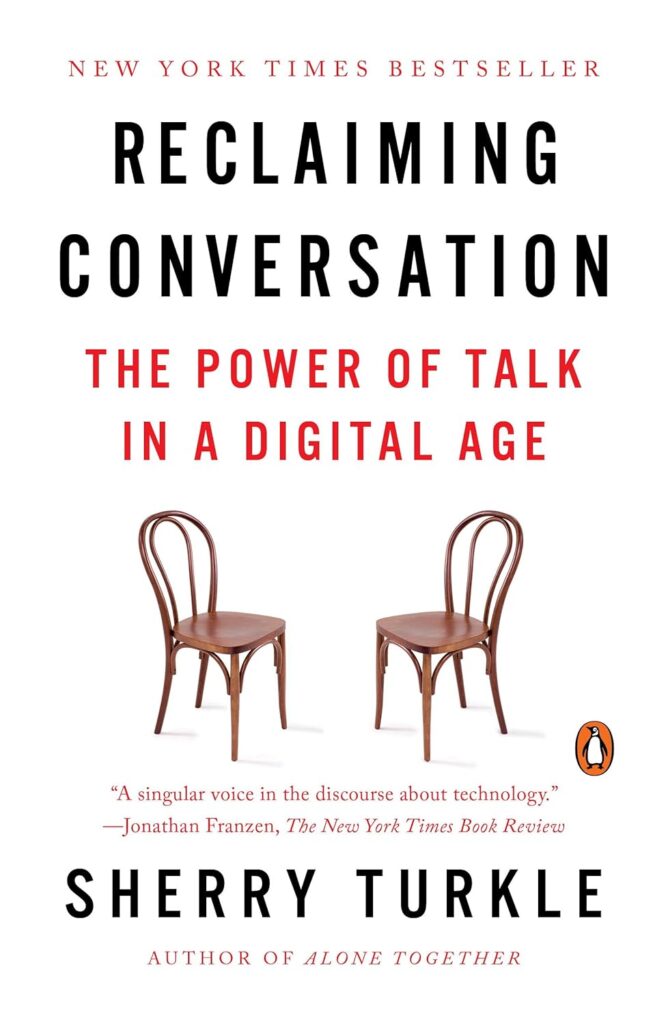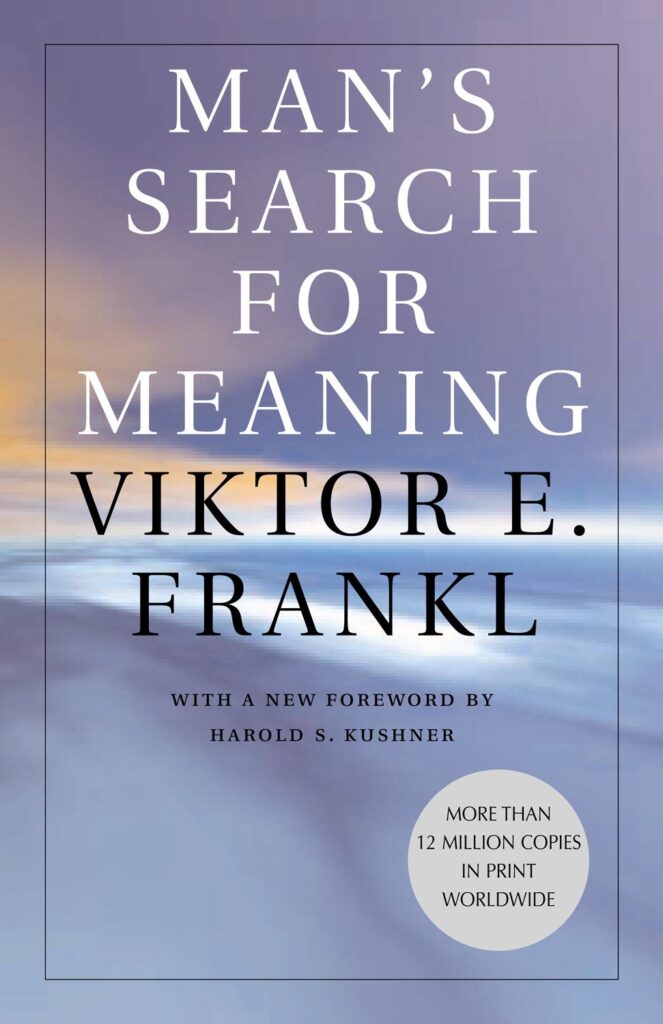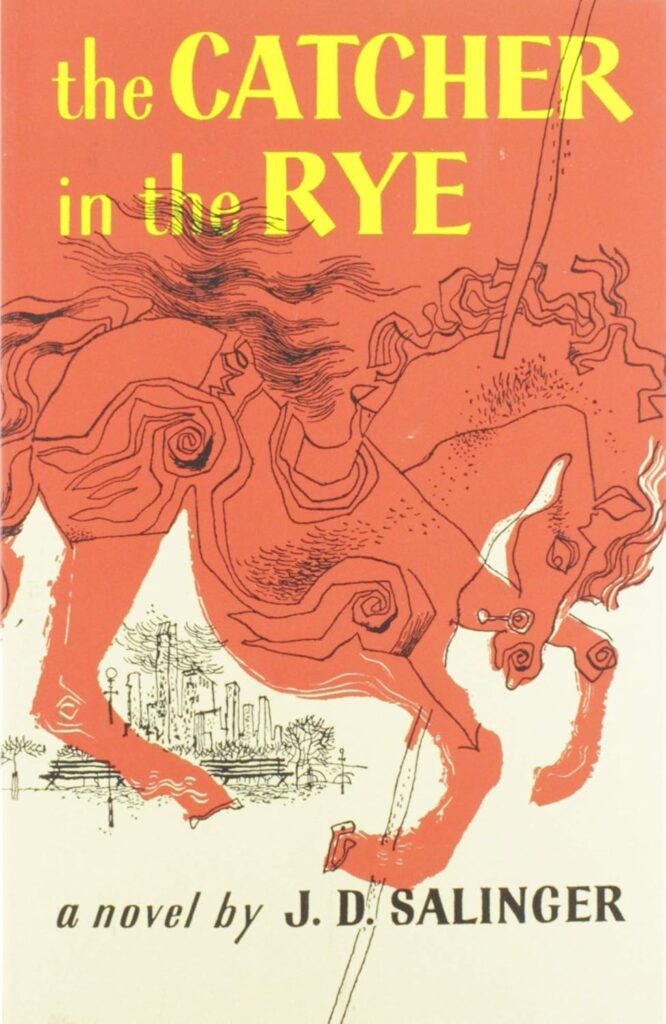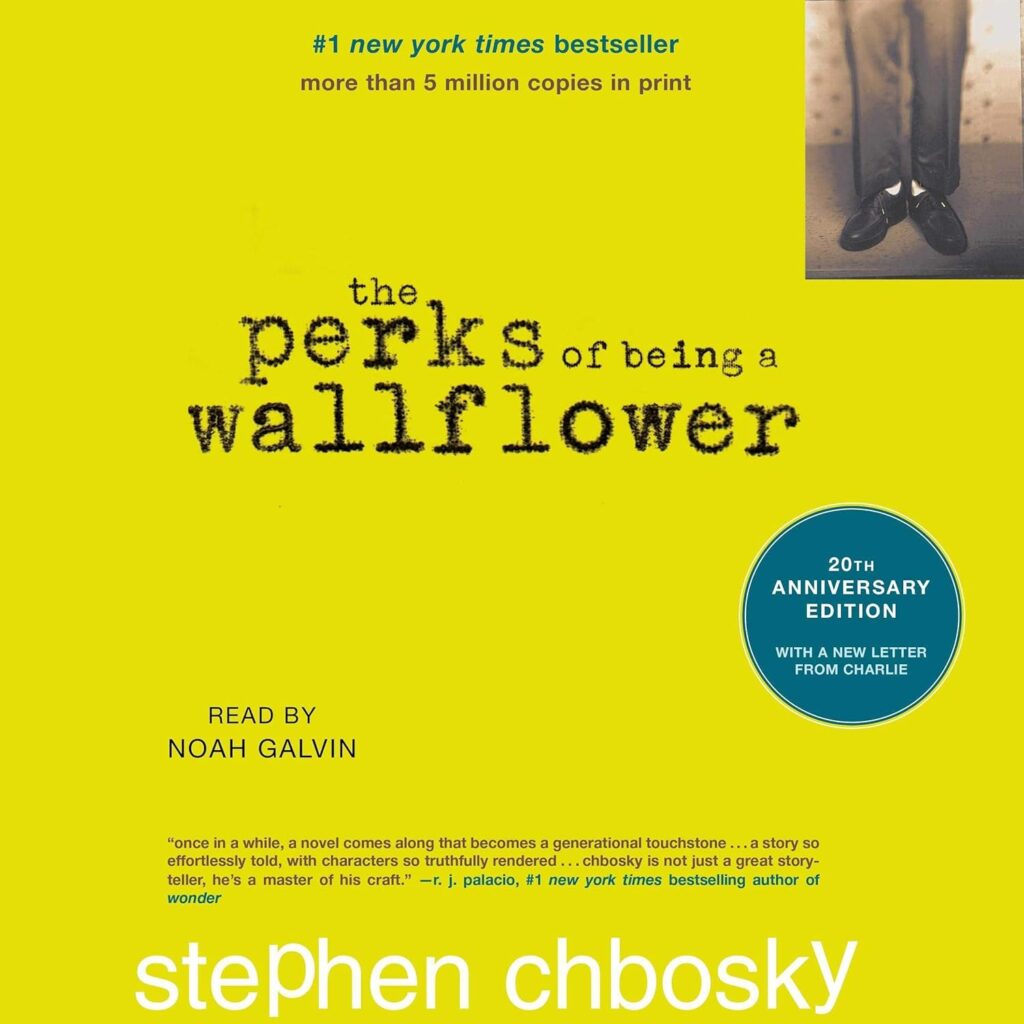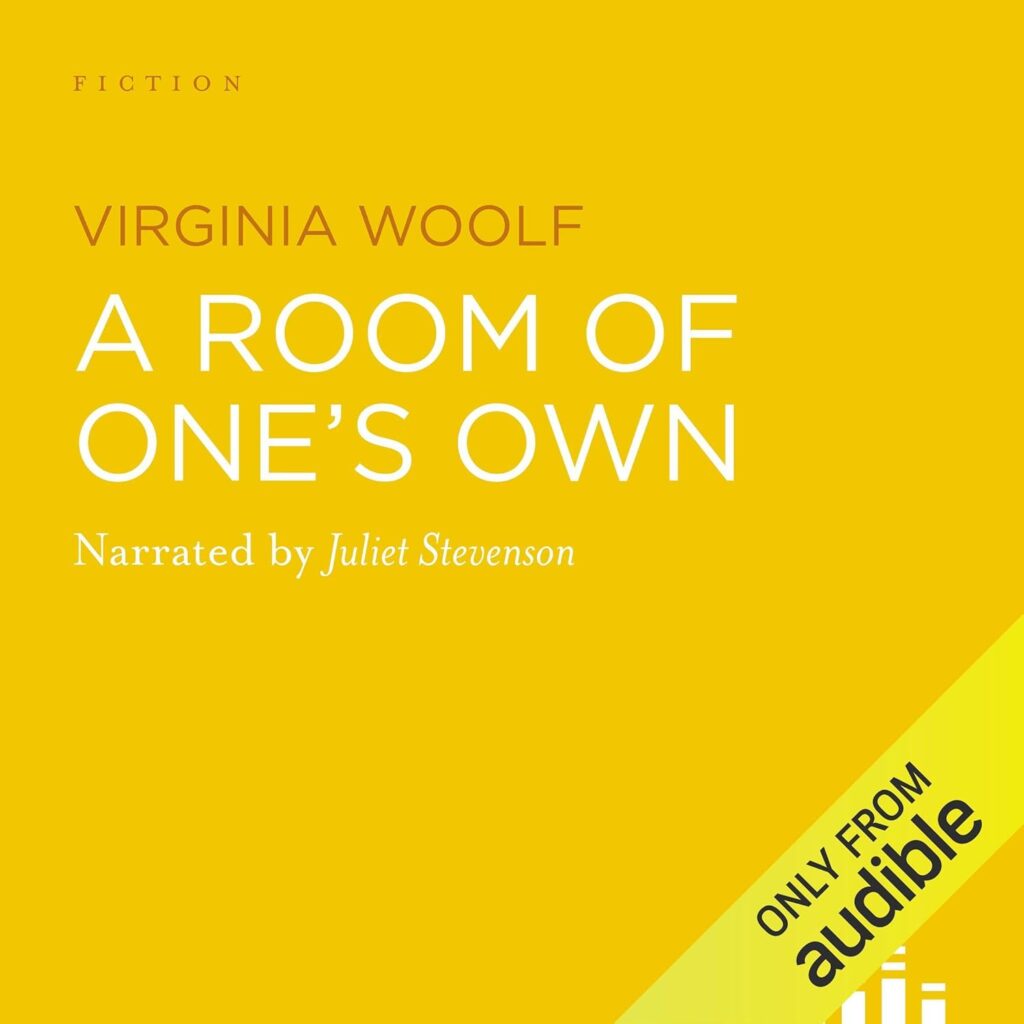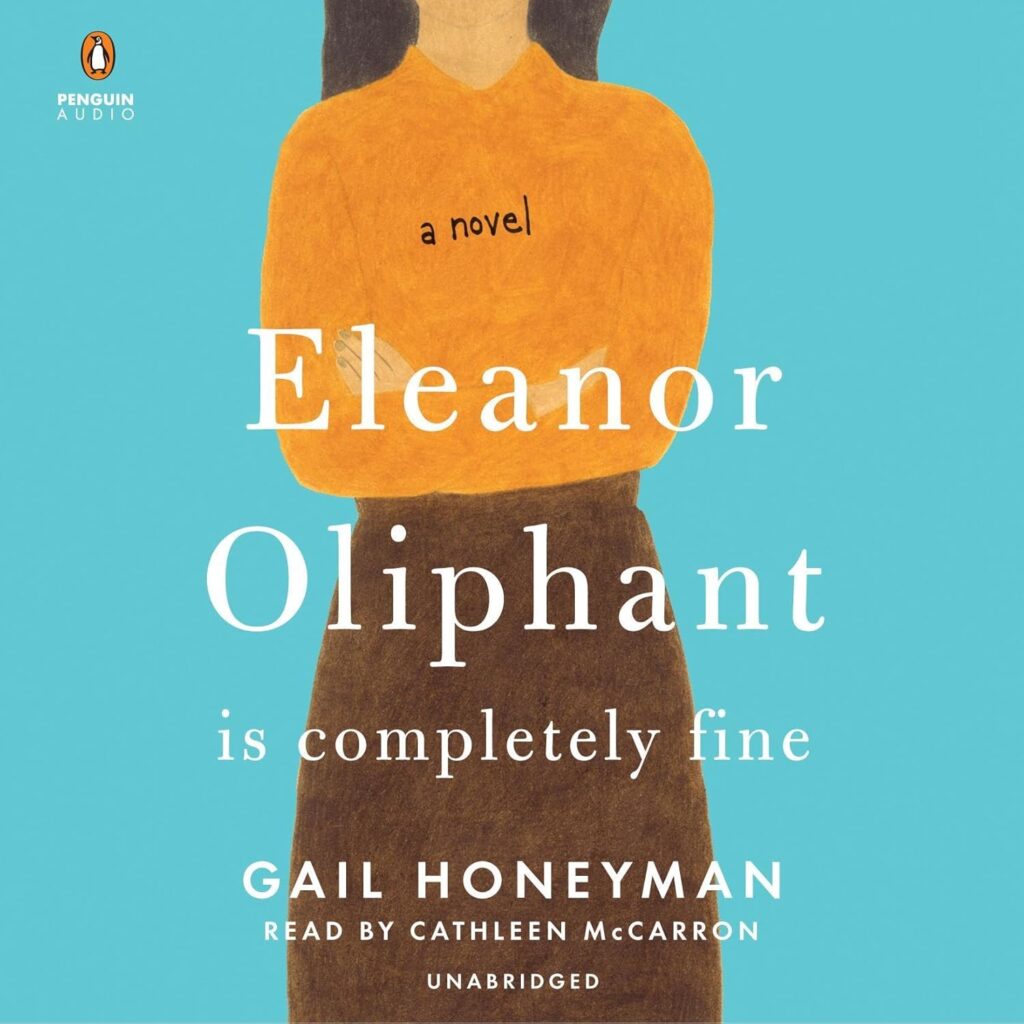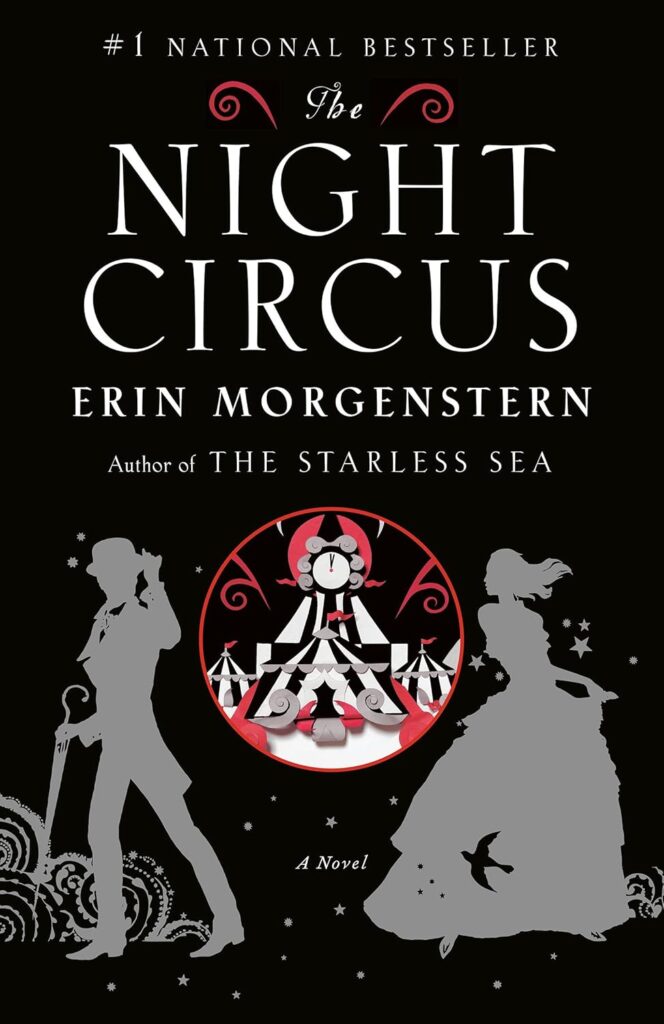Summary: In this article, I’ve compiled 20 books for introverts that celebrate the power of quiet, highlight introverted strengths. Here are my top 3:
- Quiet – The Power of Introverts in a World That Can't Stop Talking by Susan Cain
- The Introvert Advantage – How Quiet People Can Thrive in an Extrovert World by Marti Olsen Laney
- The Highly Sensitive Person by Elaine N. Aron
Books for introverts celebrate the unique strengths of quiet, introspective individuals. They offer practical tips for navigating relationships, careers, and social dynamics while fostering confidence and self-awareness. By exploring themes like solitude and meaningful connections, these books provide guidance, inspiration, and reassurance for thriving in an extroverted world.
TOP 20: Best Books for Introverts
- Quiet – The Power of Introverts in a World That Can't Stop Talking by Susan Cain
- The Introvert Advantage – How Quiet People Can Thrive in an Extrovert World by Marti Olsen Laney
- The Highly Sensitive Person by Elaine N. Aron
- Introvert Power – Why Your Inner Life Is Your Hidden Strength by Laurie Helgoe
- The Gifts of Imperfection by Brené Brown
- Quiet Influence – The Introvert's Guide to Making a Difference by Jennifer Kahnweiler
- Digital Minimalism – Choosing a Focused Life in a Noisy World by Cal Newport
- Solitude – A Return to the Self by Anthony Storr
- The Secret Lives of Introverts – Inside Our Hidden World by Jenn Granneman
- Mindfulness for Introverts by Tyler Rubin
- Personality Plus – How to Understand Others by Understanding Yourself by Florence Littauer
- The Highly Sensitive Person in Love by Elaine N. Aron
- Reclaiming Conversation – The Power of Talk in a Digital Age by Sherry Turkle
- Man's Search for Meaning by Viktor E. Frankl
- Jane Eyre by Charlotte Brontë
- The Catcher in the Rye by J.D. Salinger
- The Perks of Being a Wallflower by Stephen Chbosky
- A Room of One's Own by Virginia Woolf
- Eleanor Oliphant Is Completely Fine by Gail Honeyman
- The Night Circus by Erin Morgenstern
1. Quiet - The Power of Introverts in a World That Can't Stop Talking
- Author: Susan Cain
- About: Explores the unique strengths of introverts, challenges societal biases favoring extroversion, and empowers introverts to embrace their nature.
- Style of writing: Engaging, well-researched, and conversational with real-life anecdotes and studies.
- Length: Approximately 105,000 words (352 pages).
- Year written: 2012
- Emotional impact: High – leaves a lasting impression by helping introverts feel validated and understood.
- Difficulty level: Moderate – accessible for most readers, though it includes some scientific concepts.
- Why read it: A foundational book that reframes how society views introversion and provides actionable advice for thriving as an introvert.
2. The Introvert Advantage - How Quiet People Can Thrive in an Extrovert World
- Author: Marti Olsen Laney
- About: Offers practical strategies for introverts to succeed in relationships, work, and life while understanding their brain’s wiring.
- Style of writing: Straightforward, supportive, and relatable with a warm tone.
- Length: Approximately 96,000 words (336 pages).
- Year written: 2002
- Emotional impact: Moderate to high – provides reassurance and actionable advice, helping introverts feel empowered.
- Difficulty level: Easy to moderate – designed for general readers with clear and relatable explanations.
- Why read it: A practical guide that helps introverts better understand themselves and develop strategies to succeed without pretending to be extroverts.
3. The Highly Sensitive Person
- Author: Elaine N. Aron
- About: Focuses on people with heightened sensitivity, often overlapping with introversion, and provides tools for managing overstimulation and thriving.
- Style of writing: Gentle, empathetic, and research-backed with relatable case studies.
- Length: Approximately 82,000 words (272 pages).
- Year written: 1996
- Emotional impact: High – deeply resonates with sensitive readers and provides life-changing insights.
- Difficulty level: Moderate – includes psychological terminology but is written accessibly.
- Why read it: Essential for understanding and embracing sensitivity as a strength, particularly for introverts who feel overwhelmed in a fast-paced world.
4. Introvert Power - Why Your Inner Life Is Your Hidden Strength
- Author: Laurie Helgoe
- About: Encourages introverts to reclaim their strengths, emphasizing the value of introspection and solitude in a noisy world.
- Style of writing: Empowering, reflective, and relatable with personal anecdotes.
- Length: Approximately 96,000 words (320 pages).
- Year written: 2008
- Emotional impact: High – inspires introverts to embrace their power and shift their perspective on what success looks like.
- Difficulty level: Easy – accessible and conversational.
- Why read it: Helps introverts see their inner world as a source of strength and creativity.
5. The Gifts of Imperfection
- Author: Brené Brown
- About: Focuses on cultivating self-compassion, authenticity, and embracing vulnerability to lead a wholehearted life.
- Style of writing: Inspirational, relatable, and research-based with a conversational tone.
- Length: Approximately 45,000 words (160 pages).
- Year written: 2010
- Emotional impact: High – leaves readers feeling uplifted and encouraged to embrace their true selves.
- Difficulty level: Easy – written for a broad audience.
- Why read it: Encourages introverts to embrace imperfection and live authentically.
6. Quiet Influence - The Introvert's Guide to Making a Difference
- Author: Jennifer Kahnweiler
- About: A practical guide for introverts to lead and influence effectively by leveraging their unique strengths.
- Style of writing: Practical, supportive, and concise.
- Length: Approximately 60,000 words (200 pages).
- Year written: 2013
- Emotional impact: Moderate – empowering and practical for professional growth.
- Difficulty level: Easy – designed for working professionals and leaders.
- Why read it: Offers actionable strategies for introverts to make an impact in their careers and communities.
7. Digital Minimalism - Choosing a Focused Life in a Noisy World
- Author: Cal Newport
- About: Advocates for a tech-life balance to help people focus on what matters most.
- Style of writing: Analytical, persuasive, and thought-provoking.
- Length: Approximately 65,000 words (304 pages).
- Year written: 2019
- Emotional impact: High – motivates readers to reclaim their time and mental space.
- Difficulty level: Moderate – requires focus to fully absorb the concepts.
- Why read it: Perfect for introverts seeking solitude and meaningful engagement in a tech-heavy world.
8. Solitude - A Return to the Self
- Author: Anthony Storr
- About: Explores the importance of solitude for personal growth, creativity, and mental health.
- Style of writing: Philosophical, reflective, and deeply insightful.
- Length: Approximately 70,000 words (256 pages).
- Year written: 1988
- Emotional impact: High – encourages introspection and a deeper appreciation of solitude.
- Difficulty level: Moderate – blends psychology and philosophy.
- Why read it: A thought-provoking exploration of why solitude is essential for a fulfilling life.
9. The Secret Lives of Introverts - Inside Our Hidden World
- Author: Jenn Granneman
- About: A relatable look at introverted life, written by the founder of IntrovertDear.com.
- Style of writing: Warm, humorous, and conversational.
- Length: Approximately 65,000 words (240 pages).
- Year written: 2017
- Emotional impact: Moderate – relatable and affirming for introverts.
- Difficulty level: Easy – written in an accessible, engaging style.
- Why read it: Offers a sense of community and understanding for introverts.
10. Mindfulness for Introverts
- Author: Tyler Rubin
- About: Combines mindfulness techniques with insights tailored to introverted personalities.
- Style of writing: Practical, calming, and encouraging.
- Length: Approximately 45,000 words (160 pages).
- Year written: 2020
- Emotional impact: Moderate – promotes calmness and self-acceptance.
- Difficulty level: Easy – straightforward and beginner-friendly.
- Why read it: Helps introverts find balance and clarity through mindfulness practices.
11. Personality Plus - How to Understand Others by Understanding Yourself
- Author: Florence Littauer
- About: Explores personality types and offers tools for improving relationships and self-awareness.
- Style of writing: Informative, light, and humorous.
- Length: Approximately 60,000 words (224 pages).
- Year written: 1983
- Emotional impact: Moderate – offers practical insights with a touch of humor.
- Difficulty level: Easy – accessible to all readers.
- Why read it: Helps introverts better understand their own and others’ personalities.
12. The Highly Sensitive Person in Love
- Author: Elaine N. Aron
- About: A guide for highly sensitive people to navigate romantic relationships.
- Style of writing: Compassionate, research-backed, and practical.
- Length: Approximately 70,000 words (272 pages).
- Year written: 2001
- Emotional impact: High – deeply resonates with sensitive readers in relationships.
- Difficulty level: Moderate – blends personal stories and research.
- Why read it: Offers insights for sensitive introverts to create fulfilling romantic connections.
13. Reclaiming Conversation - The Power of Talk in a Digital Age
- Author: Sherry Turkle
- About: Examines how digital communication impacts meaningful conversation and connection.
- Style of writing: Analytical, thought-provoking, and engaging.
- Length: Approximately 120,000 words (448 pages).
- Year written: 2015
- Emotional impact: High – inspires readers to value deeper connections.
- Difficulty level: Moderate – academic yet engaging.
- Why read it: Encourages introverts to foster meaningful, face-to-face connections.
14. Man's Search for Meaning
- Author: Viktor E. Frankl
- About: A reflection on finding purpose in life, based on Frankl’s experiences in concentration camps.
- Style of writing: Philosophical, profound, and emotionally moving.
- Length: Approximately 50,000 words (200 pages).
- Year written: 1946
- Emotional impact: Very high – leaves a lasting impression with its message of resilience and meaning.
- Difficulty level: Moderate – emotionally and intellectually intense.
- Why read it: Offers timeless wisdom for finding meaning and strength, resonating deeply with introspective readers.
15. Jane Eyre
- Author: Charlotte Brontë
- About: The story of an introverted, resilient orphan navigating life, love, and independence in Victorian England.
- Style of writing: Gothic, emotional, and descriptive with rich character development.
- Length: Approximately 183,000 words (500+ pages).
- Year written: 1847
- Emotional impact: High – deeply moving with themes of self-respect and inner strength.
- Difficulty level: Moderate to high – requires focus due to Victorian language and style.
- Why read it: A timeless classic that showcases the power of introversion and inner resolve.
16. The Catcher in the Rye
- Author: J.D. Salinger
- About: A coming-of-age story about an introspective and alienated teenager, Holden Caulfield.
- Style of writing: Stream-of-consciousness, conversational, and reflective.
- Length: Approximately 73,000 words (277 pages).
- Year written: 1951
- Emotional impact: High – resonates with readers struggling with identity and belonging.
- Difficulty level: Moderate – simple language but layered themes.
- Why read it: Captures the essence of introspection and the search for authenticity.
17. The Perks of Being a Wallflower
- Author: Stephen Chbosky
- About: A coming-of-age story about a socially awkward introvert navigating high school, friendships, and trauma.
- Style of writing: Epistolary (letter format), heartfelt, and personal.
- Length: Approximately 62,000 words (224 pages).
- Year written: 1999
- Emotional impact: Very high – deeply relatable and emotionally powerful.
- Difficulty level: Easy to moderate – emotionally intense but written in simple language.
- Why read it: Perfect for introverts seeking a story that reflects their inner world and challenges.
18. A Room of One's Own
- Author: Virginia Woolf
- About: Explores the relationship between women, creativity, and the need for personal space.
- Style of writing: Philosophical, reflective, and poetic.
- Length: Approximately 42,000 words (128 pages).
- Year written: 1929
- Emotional impact: High – thought-provoking and empowering for those who value solitude and creativity.
- Difficulty level: Moderate to high – requires focus due to its literary style.
- Why read it: Encourages readers to value solitude and personal freedom as essential for creativity.
19. Eleanor Oliphant Is Completely Fine
- Author: Gail Honeyman
- About: A quirky, introverted woman learns to connect with others and confront her past.
- Style of writing: Witty, emotional, and character-driven.
- Length: Approximately 112,000 words (390 pages).
- Year written: 2017
- Emotional impact: Very high – leaves a lasting impression with its blend of humor and heartbreak.
- Difficulty level: Easy to moderate – accessible language with layered emotions.
- Why read it: A heartwarming and inspiring story about the transformative power of connection.
20. The Night Circus
- Author: Erin Morgenstern
- About: A magical, slow-burn tale of two introverted magicians bound in a mysterious competition.
- Style of writing: Lush, descriptive, and atmospheric with a dreamlike quality.
- Length: Approximately 140,000 words (500+ pages).
- Year written: 2011
- Emotional impact: Moderate to high – enchanting and immersive, leaving a sense of wonder.
- Difficulty level: Moderate – rich language but easy to follow.
- Why read it: Perfect for introverts who love imaginative worlds and thoughtful characters.
Conclusion
In a world that often celebrates extroversion, I think books like Quiet – The Power of Introverts in a World That Can't Stop Talking, The Introvert Advantage – How Quiet People Can Thrive in an Extrovert World, and The Highly Sensitive Person do an incredible job of highlighting the strengths and value of being introverted or sensitive. These top picks offer thoughtful insights, practical advice, and empowering perspectives that can really help introverts embrace who they are and thrive. For me, these books stand out because they not only provide understanding but also create a sense of belonging. If you’re looking for guidance, strategies, or simply reassurance, I believe these are the best places to start.

